Consumer
/Home & Leisure
Real estate Q&A: After 12 years, can I be fined for a code violation?
Q: About 12 years ago, I put in a pool surrounded by a chain-link fence after obtaining the appropriate permits. I put mesh slats in the fence to increase privacy. I recently received a violation notice from the city stating that I violated municipal code because slats are prohibited in chain-link fences. I have 45 days to correct the violation....Read more
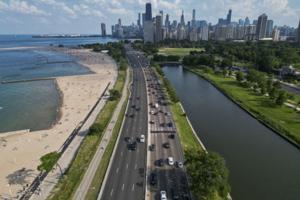
Chicago gets closer to a new north DuSable Lake Shore Drive with more park space
CHICAGO — A long-running idea to revamp north DuSable Lake Shore Drive is poised to take a step forward despite calls to halt the project, as city and state officials have selected their vision for the future of the busy thoroughfare.
That vision includes changes to the sharp curves and bottleneck-inducing traffic lights as the Drive enters ...Read more
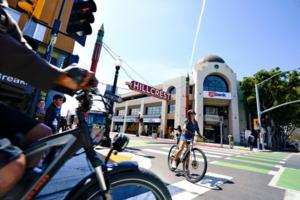
More apartments, less segregation, fewer cars: San Diego OKs sweeping changes to growth blueprint
San Diego this week made ambitious changes to the city’s blueprint for future growth that prepare the city for climate change, speed up revisions to neighborhood zoning plans and try to reverse racial segregation.
“This is a major step forward in terms of how we are not just planning for but shaping the future that San Diego needs,” ...Read more

Zelle, bank scams cost customers millions each year. This senator wants reimbursements
Consumers are losing millions of dollars every year due to financial scams in the fast-growing world of electronic money transfers, U.S. Sen. Richard Blumenthal, D-Connecticut, said Tuesday, calling for an end to loopholes allowing the problem.
The average loss to the consumer is in the range of $500, but that can be $3,000 to $5,000 for larger...Read more

Billionaires' utopia company California Forever scraps plan for ballot initiative in wake of damning report
Days after a Solano County, California, report slammed a plan backed by Silicon Valley billionaires to build a utopian new city from scratch near Fairfield, the company behind the “California Forever” project has scrapped the ballot initiative it was to put to county voters in November.
The report released late last week by Solano County ...Read more

A new Pennsylvania law protects homeowners against 'We Buy Houses' hustlers
A new Pennsylvania law aimed at protecting homeowners from predatory tactics that can strip them of their housing wealth will expand protections already in place in Philadelphia.
The state law will regulate third parties in real estate deals called “wholesalers,” who sign agreements of sale with homeowners and then sell those agreements to ...Read more

Allison Schrager: Yes, you can save too much for retirement
A young colleague came to me recently with a shameful admission: Despite the lecturing of her friends and family, as well as her own best intentions, she had not yet signed up for the company 401(k) plan. She lives in an expensive city, and is nervous about tying up her money for the next 40 or 50 years.
Like any good retirement economist, I ...Read more

7 mindset shifts that can make you a millionaire
When it comes to becoming a millionaire, your mindset is an important factor, maybe the key factor, in getting you there. Yes, earning a higher income can help you build your net worth — let’s not pretend a high income isn’t important — but poor financial habits can destroy any amount of income. However, even modest earners with the ...Read more

Some people in Georgia earn too much to get Medicaid but not enough to buy private insurance plan
LaShonda Harrell is in so much pain most days she can barely stand up. The Austell resident was diagnosed with Stage 4 metastasized breast cancer two years ago.
“The pain can be a 10,” said Harrell, 43. “If you’ve ever had the flu and you feel like your bones ache, imagine that every day.”
Despite serious medical problems, Harrell ...Read more

Report: A Bay Area without BART would impact housing, traffic and the economy
Bay Area Rapid Transit has been crystal clear about the consequences of its so-called impending fiscal cliff. The transit agency is facing a $35 million budget shortfall in the 2026 fiscal year, and without a new source of revenue, stations could close, train lines could shut down, weekend service could be axed and mass layoffs could cripple ...Read more
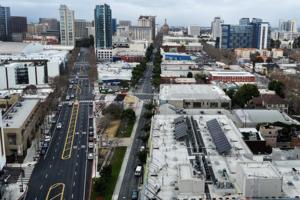
Empty offices haunt downtown San Jose, Oakland and San Francisco
SAN JOSE, California — Empty offices haunt the downtown districts of the Bay Area’s three largest cities, a new report shows, an indicator that companies and workers still shun the cores of this region’s urban centers.
During the April-through-June second quarter of 2024, office buildings were about one-third vacant in downtown San Jose, ...Read more

Apple affordable housing push helps Santa Cruz, San Francisco projects
CUPERTINO, California — Apple has launched what it calls a “Bay Area Housing Innovation Fund” that the iPhone maker hopes will help bolster the development of more affordable homes in the region and adjacent areas.
The housing innovation fund will make targeted loans with favorable terms to create more development of affordable residences...Read more
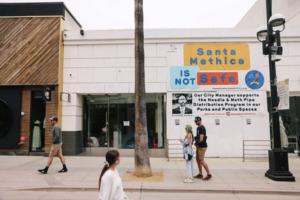
Santa Monica's Third Street Promenade is a retail relic. Can it be saved?
SANTA MONICA, California — Once Santa’s Monica’s signature destination for shopping and dining, the Third Street Promenade is showing its age.
Its decline has left the promenade’s landlords and city officials trying to counter years of stagnation, public safety concerns and fast-changing retail norms in an attempt to breathe new life ...Read more
Real estate Q&A: What's the financial liability for neighbor's dead tree?
Q: My neighbor has a large pine tree that died this summer. It is five feet from our shared property line and within range of damaging our home if it falls. How would the financial liability play out between us, them, and our respective insurance companies? — Jen
A: If a tree falls on your property because it is unhealthy or not maintained by...Read more
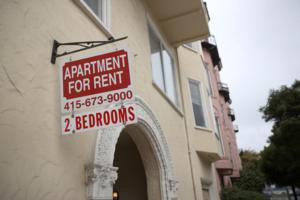
What would Biden's proposed 5% nationwide rent cap mean for the Bay Area?
President Joe Biden on Tuesday announced a new proposal to cap rent increases for many apartment buildings nationwide, a plan cheered by Bay Area tenant advocates but one that landlords and some experts said could exacerbate the region’s chronic housing shortage.
Biden unveiled the proposal that would require approval by Congress, following ...Read more

New soundstages planned in Burbank after studio sale
The former NBC Studios, in what TV host Johnny Carson used to call "beautiful downtown Burbank," has sold for $375 million to a local developer who previously owned the property and plans to add more soundstages to the legendary lot.
Worthe Real Estate Group and partners bought the 27-acre film and television production facility now known as ...Read more
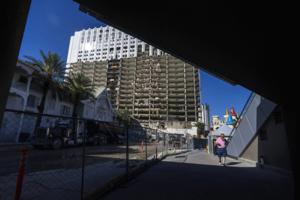
Could a Chicago casino project be a template for developing Tropicana site?
Industry analysts are encouraged by a recently announced financial arrangement between Bally’s Corp. and Gaming & Leisure Properties Inc. to develop a Chicago casino, and there are suggestions the two companies might benefit from a similar strategy in Las Vegas after the Tropicana is demolished.
GLPI is providing Bally’s with the money ...Read more

After 89-year-old mom pushed out of apartment, daughter adds accessible ADU
LOS ANGELES -- About 10 years ago, Julie Zemel started worrying about her mother, Mimi, who lived alone in an apartment in Chicago and was often stuck inside for months due to the weather.
“It was clear she was becoming increasingly fragile, physically and socially isolated, with no relatives or friends living nearby,” Zemel says. “It ...Read more

Keeping up with the Joneses: What it might be costing Americans
Jamie Feldman, 35 years old, lives in Brooklyn, N.Y. and is currently paying off nearly $20,000 in credit card debt. She’s also the co-host of Debt Heads podcast. After being laid off during the COVID-19 pandemic, she maxed out a credit card while spending to keep up with her social life.
“It was a lot of social commitments,” Feldman ...Read more

5 popular investment trends for the rest of 2024
Seasoned investors often approach markets with a long-term view, using short- and medium-term volatility to buy into the themes they believe will profit over many years. While identifying these trends is difficult, tuning out the noise can help you focus your portfolio on the winners, possibly resulting in significant gains.
Here are five of ...Read more
Popular Stories
- Real estate Q&A: After 12 years, can I be fined for a code violation?
- More apartments, less segregation, fewer cars: San Diego OKs sweeping changes to growth blueprint
- Zelle, bank scams cost customers millions each year. This senator wants reimbursements
- Real estate stocks soar to best day of year on rate cut bets
- Chicago gets closer to a new north DuSable Lake Shore Drive with more park space





